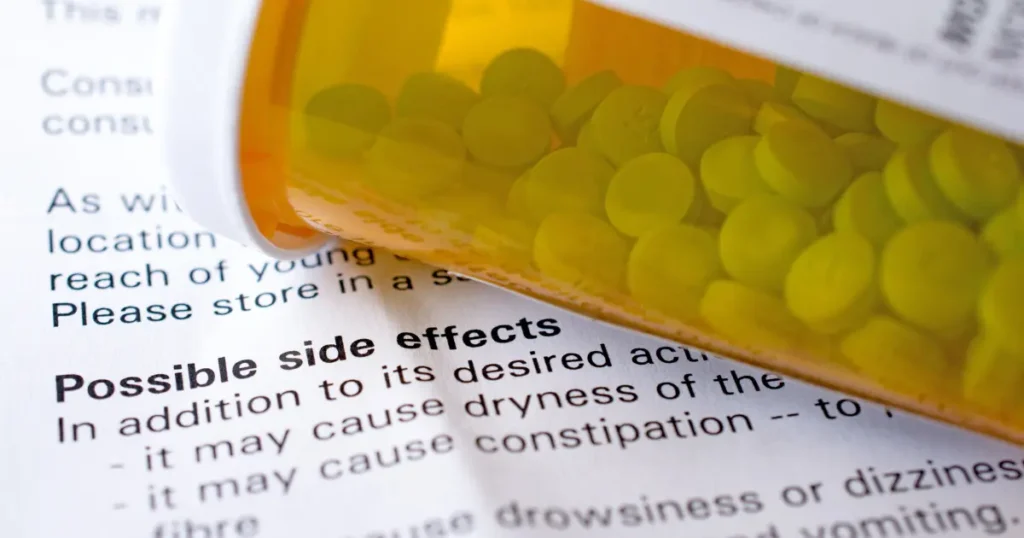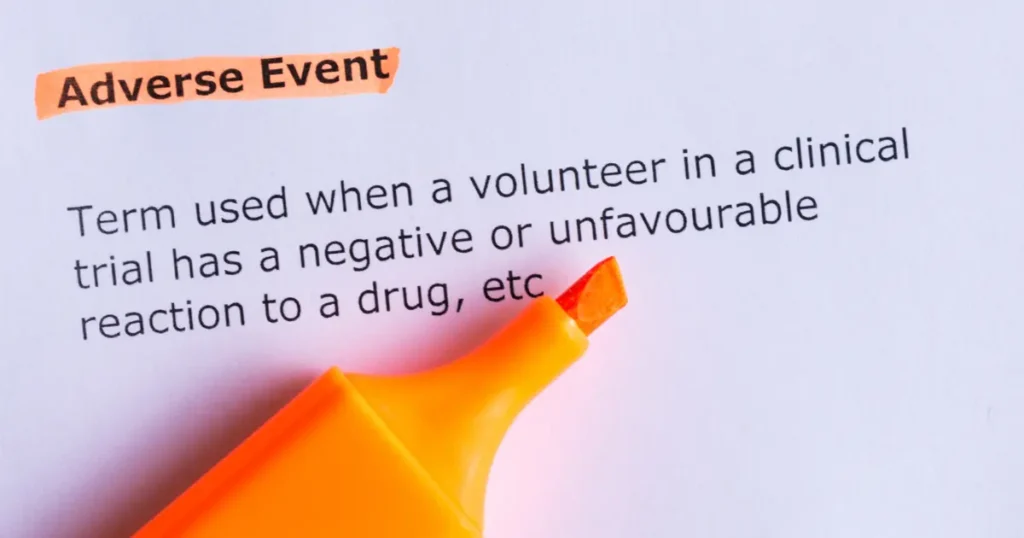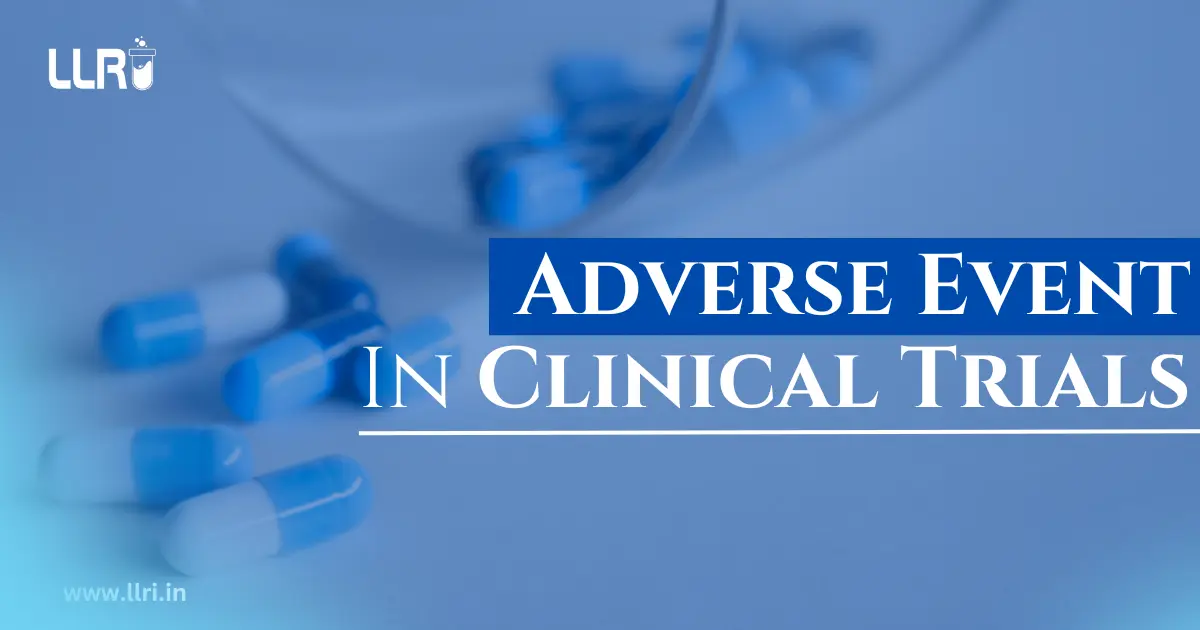Adverse Event In Clinical Trials: Clinical trials are a critical phase in drug development, ensuring that new medications are both safe and effective. However, they also come with risks, including adverse events (AEs) that can affect patient safety.
Understanding these events, their causes, and their impact is important for clinical researchers, pharmaceutical companies, and healthcare professionals.
In this blog, we will discuss:
- What is an adverse drug event?
- Examples of adverse drug events in clinical trials
- Types of adverse drug events and their impact
- Cost of adverse drug events on the healthcare system
- Difference between adverse drug reaction and adverse drug event (ADR vs ADE)
- How clinical research training can help professionals manage these risks
What is an Adverse Event in Clinical Trials?
An adverse event (AE) in a clinical trial refers to any undesired medical occurrence in a participant who has received a pharmaceutical product, regardless of whether it is directly caused by the drug. It could be a mild symptom like nausea or a severe reaction such as organ failure.
Key features of an adverse event:
- Can be mild, moderate, or severe
- May or may not be related to the drug
- Can lead to the discontinuation of a drug in trials
- Reported and monitored under strict clinical research protocols
Read more: What Is Adverse Drug Reaction? Types, Difference B/W Adverse Event And Adverse Drug Reaction

Examples of Adverse Drug Events in Clinical Trials
Adverse drug events (ADEs) are a subset of adverse events and occur due to medication use. Here are some real-world examples of adverse drug events:
- Rofecoxib (Vioxx) – This painkiller was withdrawn from the market due to cardiovascular risks.
- Thalidomide Tragedy – Caused severe birth defects in the 1950s.
- Tegaserod (Zelnorm) – Withdrawn due to increased heart attack and stroke risks.
According to a study in the Journal of the American Medical Association (JAMA), ADEs cause over 100,000 hospitalizations annually worldwide.
Types of Adverse Drug Events
Adverse drug events in clinical trials are classified into different categories based on severity and cause:
1. Serious Adverse Events (SAE)
- Life-threatening conditions such as heart attacks or organ failure.
- Often require hospitalization.
- Example: Anaphylaxis (a severe allergic reaction).
2. Expected vs. Unexpected ADEs
- Expected ADEs – Side effects already known (e.g., nausea with chemotherapy drugs).
- Unexpected ADEs – Reactions that were not anticipated (e.g., severe liver damage from a new drug).
3. Dose-Related ADEs
- Occurs when a higher-than-necessary dose leads to toxicity (e.g., liver failure due to an overdose of paracetamol).
4. Allergic Reactions
- An immune response to a drug (e.g., rash, swelling, breathing difficulties).
ADR vs. ADE: What’s the Difference?
One of the most common questions in clinical research training is:
What is the difference between adverse drug reaction and adverse drug event?
| Features | Adverse Drug Event (ADE) | Adverse Drug Reaction (ADR) |
| Definition | Any injury caused by a drug, including misuse or medical errors. | A harmful or unintended reaction to a drug at normal doses. |
| Cause | Can be due to improper use, overdose, or medication error. | Occurs due to the drug itself, even at the right dose. |
| Example | Taking too much insulin and experiencing severe hypoglycemia. | Skin rash from an antibiotic at normal doses. |
In short, ADR is a subset of ADE, but ADE also includes errors and overdoses.
Impact of Adverse Drug Events on Healthcare
The cost of adverse drug events is staggering for both healthcare providers and patients.
Financial costs:
- In the US alone, ADEs result in $30 billion in additional healthcare expenses annually.
- India sees increased hospitalization costs due to medication-related complications.
Impact on clinical trials:
- If a serious ADE occurs, trials may be paused or stopped entirely.
- Drug approval processes get delayed.
- Pharmaceutical companies suffer financial losses and legal issues.
A well-trained clinical researcher can help identify and prevent ADEs, making clinical research courses essential for the industry!

How Clinical Research Training Helps Manage Adverse Events
Clinical trials require trained professionals who can detect, report, and manage adverse events. Enrolling in a clinical research course can help individuals understand:
- Pharmacovigilance & Drug Safety
- How to report ADEs using standard guidelines
- Regulatory requirements for adverse event management
If you’re looking for the best institute for PG Diploma in Clinical Research, consider LLRI (Learning Lab Research Institute). Their programs cover clinical research training, ADR management, and drug safety regulations in detail.
Top Clinical Research Courses to Consider:
- Diploma in Clinical Research
- Advance Diploma in Clinical Research
- Pro Advance Diploma in Clinical Research
On A Final Note…
Managing adverse events in clinical trials is a critical responsibility in drug development. Whether it’s identifying types of adverse drug events or understanding the difference between ADR and ADE, proper knowledge is essential.
If you’re interested in a career in this field, investing in a clinical research course from a recognized clinical research institute can set you up for success.
Have you ever encountered an adverse drug event? Share your experiences in the comments!
Looking to boost your career in clinical research? Explore LLRI’s industry-focused courses today!

